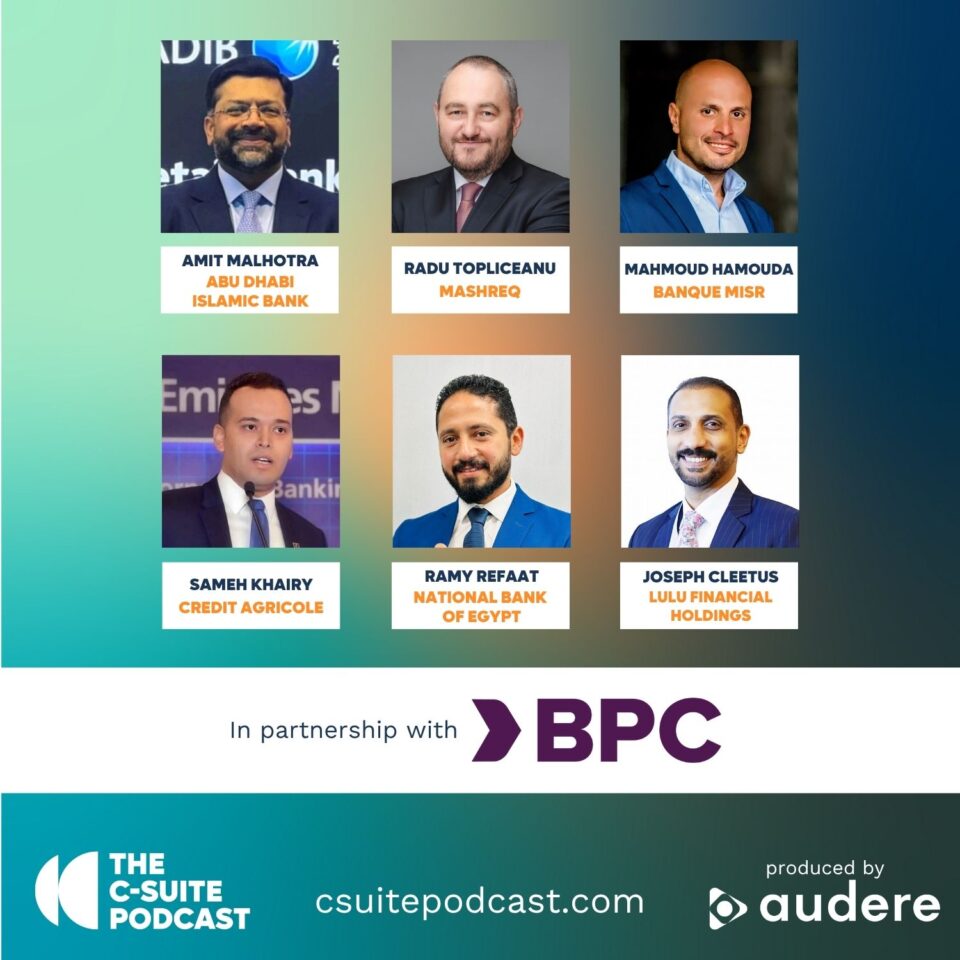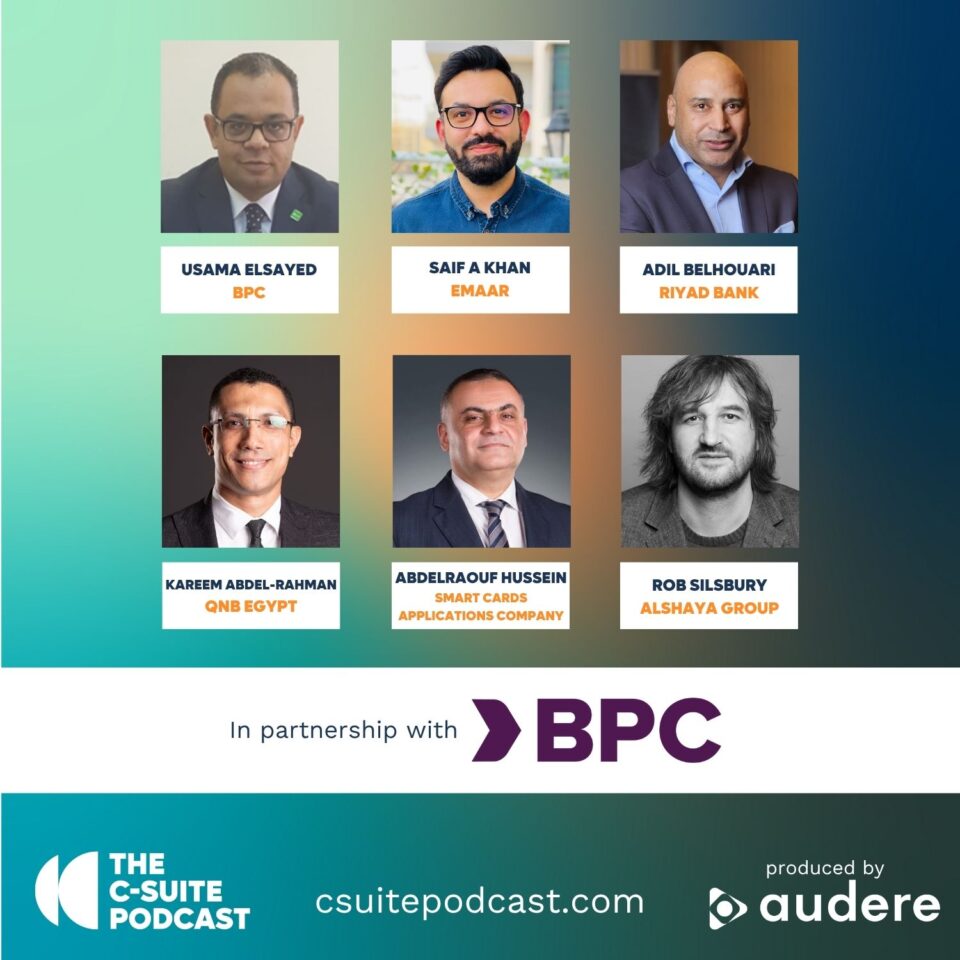The third and final episode of the FinTech Connect 2022 that we recording in partnership with Freemarket, where we interviewed keynote speakers from the event to hear their insight into the Fintech space.
Our guests for this second episode were:
1. Ebru Keskin, Advisory Board Member, Fintech Connect
2. Eric Queathem, EVP Global Head of Strategy and Emerging Businesses, Worldpay from FIS
3. Richard Harrison, VP of Sales, Freemarket
4. Jamie Broadbent, Head of Digital, Innovation and Design, RBS
5. Mukund Umalkar, Director of FinTech Partnerships, ING
6. Laurent Marochini, Head of Innovation, Société Genèrale Securities Services – SGSS
7. Nataliya (Kozachenko) Johnson, CEO and Founder, Vasant Capital
The guests covered a broad range of topics such as using crypto as a payment option, creating a banking experience for the younger generation, and how the current sales marketplace looks in the payment sector.
Ebru Keskin
Ebru Keskin is a member of the board at FinTech Connect and she shared her insights into the event with us. She was thrilled with the turnout and the amount of people who were keen to network and commented that the event had gone much better than she anticipated.

with Ebru Keskin
In regards to the future of FinTech Connect, they want to go global continent-wise. At the moment there is FinTech Connect Asia which was successful and had a lot of brand participation. In the future the events are aiming to expand and animated with a lot more interest from mainstream companies. The likes of Spotify and Google attended FinTech Connect London which was interesting to see and shows how the profile of the event is increasing.
The key talking points in fintech from Ebru’s perspective are new payment methods like embedded finance. This is in addition to open banking, new fraud solutions, web3, crypto, digital payments, the metaverse and emerging payments. These are all new technologies that require service providers in the fintech industry.
FinTech Connect is a great place to have these conversations under one roof. The board members spoke a few months ago about the metaverse being worth a discussion due to its relative novelty and as a new technology requiring a lot of digital identity. Payments were seeing a lot of data and digital identity coming together in fintech and now that they’re all joining forces and talking to each other the increase in industry interest has been brilliant.
The participation they’ve seen at the event shows just how much attendees are interested in this topic and that the future could see exponential growth.
Eric Queathem
Eric Queathem, EVP of Global Strategy and Emerging Businesses at Worldpay joined us on the Freemarket stand to discuss the key points raised in his panel session around digital transformation in payments. The main conversation was that whether you’re a bank, a leader from Adava who’s thinking about helping organizations build great payments’ products to big merchants, thinking about how you leverage payments to change the customer experience is the focus for 2023. The mindset has really changed from growth to profitability across almost every organization. Eric explained how hard it is to marry those elements together in a way that most would like so companies are trying to figure out how they can achieve this in a cost-effective way but with probably less people and less development resources.

with Eric Queathem
Worldpay undertook some primary research earlier in the year to find out if consumers are ready to accept crypto as a viable payment option. For the people who are active in the crypto space and the merchants, there is a demand and much of that is driven from organisations that are trying to find ways to be relevant and dip their toes into the crypto space. Eric gave the example of Harrods and how they’re starting to think about what the world of crypto and web3 means for them and how they can get involved. Acceptance at the point of sale with crypto is an easy, low-risk way to do that and it’s a way to prove to an organisation that consumers are thinking about it. More broadly across the world, businesses are starting to build crypto and web3 capabilities and teams. Crypto solves a lot of cross-border payment issues by balancing cost, security, and speed and Eric thinks the perfect formula for those three doesn’t exist yet which is why we have yet to see large organisations latch onto any one solution.
Many retailers and mainstream organisations are curiously exploring crypto. Worldpay have been in the crypto space since 2016 and Eric sees the company as leading from a payment perspective in terms of being an organization that wants to be at the centre of what the intersection of Fiat and crypto looks like. Due to this, Worldpay get a lot of questions from large retailers or other organisations on how they should think about it. Their advice to them in consistent which is we’re very early and the markets evolving. The regulatory framework for how the ecosystem is going to operate is not yet there although every day the government takes more steps to put frameworks into place that de-risk the ecosystem.
Embedded finance is a big trend within consumer payments and consists of three key products: the ability to open an account, to issue some form of card off the back of that and then the ability to provide a form of capital or lending capabilities. Eric thinks fintechs and merchants are learning that there are ways for them to play within that ecosystem. From an FIS perspective, they’ve served banks that are in the DNA of what FIS does. They’re now seeing that intersect with organisations that want to own the customer experience and deliver that in a seamless way.
Richard Harrison
Richard Harrison, VP of Sales at Freemarket joined us firstly to discuss his sales technique and how that evolved over time. In the last 10 years of his career, he’s seen the development of strategic sales including the ability to understand what a client requires and then building the solution to match their requirements. Within sales, you become much more of a trusted partner if you do the strategic sales approach and build trust with people that buy into you as an individual instead of just what you’re selling. Relationships are key and people buy from people.

with Richard Harrison
There is an idea that the cross-border and FX industry is saturated and there are lots of these companies out there. Richard explains Freemarket are more than that, how they physically do cross-border payments and FX is the differentiator. Banking resilience and banking redundancy is their niche and there aren’t many companies who offer the level of banking partnerships, redundancy, stability, and the ability to flip payments accounts from one bank to another. That’s where they’ve carved out a niche for themselves. Freemarket have a strong client retention rate with trusted partners and they aim to make processes as convenient as possible for their clients and that’s why the clients stay with them.
Jamie Broadbent
Jamie Broadbent, Head of Digital, Innovation and Design at RBS International joins us next on the Freemarket stand. He was talking at FinTech Connect about consumer payments habits and how COVID was a big accelerator to how they have seen change in this area. Cash and card usage is in decline as people seek digital first and contactless solutions and this demonstrates that customers want fast, frictionless and secure payment options.

with Jamie Broadbent
Taking Alexa as an example, people view that type of technology as just another voice in the kitchen and you can buy things from this technology just by speaking to it. Therefore, in the future Jamie is certain that we will see embedded payments in homes, cars and wherever you might be.
At RBS, Jamie is placing a lot of focus on the younger generation and educating them in their own finances. He explains how banks have had it too good for too long as it was a rite of passage to open a bank account when you get to a certain age with one of the big four. The reality with this next wave of consumer who are digital first players, RBS have got to make it clear to them the added value they can offer to meet them in the channels where they already are and speak to them in a trusted voice they recognise.
Corporate and institutional clients are different but they’re still people-buyers. Most financial directors they deal with are millennials, digitally savvy and accept a certain level of user experience in their personal banking.
Some solutions that financial directors can offer are mobile solution for remote payment authorisation. Finance directors don’t want to be anchored to the office the same way they want to be able to authorise payments on behalf of the financial institution. Now that they’ve put the bank in the pocket of a key decision maker, what RBS has created is an opportunity to make that a two-way channel. Delivering real time insight to that user gives them the opportunity to contact the bank securely through one click giving the client a whole new experience.
Everyone wants banking to be easy and effortless but not frictionless as when something is too easy, people tend to get nervous. Therefore, there needs to be a constant reassurance to the customer that this is safe and secure, mobile is a way to do this as it uses biometrics to authorise the release of funds.
Jamie sees the biggest challenge going into 2023 is getting the bank to move faster than it ever has. There are no shortage of challenges though as customers expect a pace that banks can’t keep up with.
Mukund Umalkar

with Mukund Umalkar
, Director of Partnerships at ING is next on the episode and his panel at FinTech Connect was all about integrating AI into RegTech
AI has a big role to play when it comes to RegTech and FinTech in general according to Mukund as AI can help read regulatory documents, derive insights, derive our obligations. It has a big role to play in understanding customer needs, who they are and their behaviours. AI is supporting big credit risk models, automating processes such as reporting. Overall, there are huge opportunities deploying AI however, where there is reward there often comes risk. For example, AI is really underpinned by large volumes of data and making to protect that customer data and people’s privacy rights is important. This is done by monitoring the behaviour of some of the AI algorithms so that they don’t develop biases is key.
At ING fintech partnerships is about collaborating with fintechs and helping accelerate their digital journey. Over the past few years, they’ve developed teams and capabilities in working closely with fintechs to collaborate with them. It requires a different engagement model and mindset as it isn’t the same as working with IBM or Microsoft. They’ve developed processes of identifying opportunities and problems fintechs can help with. How do we go out in the market? how do we scout for the right fintech partners? how do we test, validate, and evaluate their solutions? Working closely with the business, and then, where relevant, how do we scale and distribute those solutions in our organisation? This is a way to bring new capabilities, and solutions, augmenting some skill sets like data privacy which is a huge priority for ING. One of the companies that ING partnered with and invested in is eXate which helps ING colleagues leverage huge amounts of data sets that they have available but do it in a way that preserves customer privacy obligations and data privacy regulations.
These partnerships fit into the overall digital transformation at ING as they focus on two strategic areas. Firstly, providing them with superior customer experiences and putting the customer at the centre of everything they do. Secondly, sustainability is a focus as they have a huge ambition to be environmentally sustainable by helping their customers in the transition journey. ING have enablers that support their other priorities such as a seamless digital journey, scalable tech and operations are important.
Mukund understands there is a lot changing around and that has been seen at FinTech Connect, which means ING must adapt to this change. They focus on their customers through their needs and challenges to make every service easy and convenient for the customer. Personalisation is used in different ways for different clients. For private individuals and small businesses, it’s about delivering personalised service that is timely and can be used through mobile channels. For medium-sized businesses, it’s about tailored solutions and intervening in specific events where they might need support and augmented by expert teams that might be remote or face-to-face. In the case of corporate and institutional customers, it’s about focusing on relationships and deep sector knowledge that they have in the industry.
Laurent Marochini
Laurent Marochini, Head of Innovation at SGSS was next to join Graham on the Freemarket stand. His session was about how financial institutions are preparing for Web3 which was with an animated panel full of insightful speakers. He explained that we are still at the beginning of the journey regarding Web3, but we need to understand before moving into this space that there is a lot of hype regarding this topic. The industry has made a lot of achievements in tokenization and is convinced that tokenization of financial assets and the non-financial assets will bring a lot of benefits to the industry as a whole as well as global custody, the crypto custody that can bring a lot of benefits.

with Laurent Marochini
When thinking about how mainstream of a solution crypto may become, Laurent explains that crypto one year ago in November 2021 the market capitalisation was at $3 trillion but now it’s at $1 trillion. Collapses have been seen this year through Terra Luna in May and the last one with FTX nearly two weeks before FinTech Connect. From an asset management perspective, they still see a lot of interest move in this space from the asset management industry. Laurent’s personal belief is if crypto will be mainstream they need to work in a regulated environment and do a lot of work in risk management.
Laurent explained an offer they launched in September to allow customers to invest in crypto because the demand from the client and because crypto is here to stay. The offer is an extension to their traditional offer which allows client asset managers to invest in cryptocurrency. They choose a crypto exchange and crypto custodians based on different compliance criteria like regulation, countries they operate, the reputation of the ecosystem and track record in terms of cybersecurity. SGSS do the record-keeping of the crypto position and after they do the different elements like NAV calculation and transfer agent.
There was a big announcement on the market, especially with EIB, European Investment Bank, that has issued €100 million debt. It was completed under Luxembourg law and SGSS has been appointed as the account keeper.
Nataliya Johnson
Nataliya Johnson, CEO and Founder at Vasant Capital was our final guest. Nataliya is from Ukraine so the war with Russia has affected both her personal and professional outlook. She explained that she was 11 when the Soviet Union collapsed and has seen a lot of family businesses as a child. When she started in university, she had five different companies.

with Nataliya Johnson
FinTech Connect is a must attend event for Nataliya and is a different angle to traditional finance. Her background is as an investment banker, corporate financer and eventually an investor. Her focus is in finance but blended with technology as this penetrates every industry. FinTech can be used to address issues around the globe like poverty which is the factor of financial illiteracy as over 2 billion people don’t have proper banking services. So, if they can eliminate poverty, fintech can be in the front in this competition because finance is important and powerful.
To conclude Natalia sees the next key investment opportunity being cybersecurity. Fraud is as old as humanity and it has become sophisticated. Open banking is a subdivision of that because of the existence of open banking and no one can create fake documents to support loan applications for example. Any lender can go in real-time and see what’s happening in the account of a particular person who wants to borrow. Another great investment opportunity is in mobile payments Natalia thinks as many people have smartphones so this is a priority in her mind.











